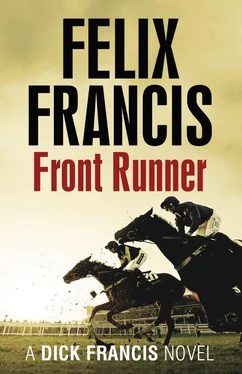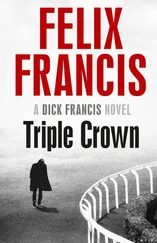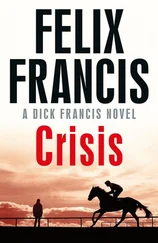I studied again his rides on Garrick Party at Haydock, and on Chiltern Line at Ludlow.
Having spoken to Jason Butcher, I was more convinced than ever that Garrick Party had not been given the opportunity to win the race at Haydock because Dave Swinton had decided not to allow him to run freely as a front runner, as was his forte. That was not to say that the horse would have definitely won if he had been allowed to do so. That was impossible to say.
However, the big question remained: did Dave make that decision with the express intention of not winning?
The race at Ludlow was less clear-cut. If Chiltern Line’s trainer, Tom Cheek, had said that the horse liked to be kept tight to the running rail, it was well within the realm of probability that even a jockey of Dave Swinton’s ability could have found himself badly boxed-in.
I also pulled up the race at Doncaster in which Dave had finished second on Perambulator.
I could understand Jason Butcher’s frustration as the horse seemed to come from nowhere to within a stride of victory but there was no evidence on the film to show that Dave Swinton had been in any way at fault. It clearly showed him making continuous efforts to get the horse to quicken from the last fence onwards but he was rewarded by a response only in the last hundred yards or so. A lesser jockey might have had no response at all.
If Dave had lost that race on purpose then he had been very clever at disguising what he had done.
I leaned back in my chair and stared at the ceiling.
But Dave Swinton had been very clever.
Next, I looked up his statistics for the previous full season.
He had ridden in just over nine hundred races in the United Kingdom. At one hundred and sixty pounds for each ride, that represented an annual official riding fee income of a little over a hundred and forty thousand pounds. Pretty good, but hardly a huge return for risking one’s life on a daily basis. Some Premier League footballers earned that sort of money in a week.
There was no record of the falls D. Swinton had suffered but, statistically, a jump jockey could expect to hit the turf on about eight per cent of his rides — that is more than seventy falls in a nine-hundred-race season. So, on average, once or twice a week, every week, Dave would have crashed to the ground at thirty miles an hour alongside half a ton of leg-flailing horseflesh, and with untold other horses behind him trying to jump onto the space he occupied on the grass.
Bruises, like those I’d seen on his body on the morning of the Hennessy, must have been a constant companion.
Was it any wonder that he’d asked the trainers for more money? I’d have needed a signed blank cheque and a full suit of armour, not a pair of diaphanous nylon breeches and some wafer-thin featherweight riding boots.
I went out for lunch at the Old Red Lion pub right next door to the BHA offices and found Paul Maldini propping up the bar.
‘Not like you to be drinking at lunchtime,’ I said to him.
‘I’m not,’ he said. He lifted his glass. ‘Diet Coke.’
‘Want another?’ I asked.
‘Thanks.’
I ordered the Diet Coke for him and a lime, lemon and bitters for myself.
‘We should have had Dave Swinton in for lunch today,’ he said.
‘I know.’
‘I couldn’t stand being in there.’ He nodded towards the building next door. ‘I needed to get out.’ I was surprised that he appeared visibly upset. ‘It was my idea, you know.’
‘What was?’ I asked.
‘The Racing Needs You! campaign and getting Dave Swinton to be on the posters. I’d invested a lot of time and effort in getting him to agree to be here today.’
I knew that Paul had been on the campaign committee but I had no idea he’d been the main driver behind it. Would it have been better or worse if I’d told him about Dave’s admission that he’d not won a race on purpose? I now wished I had told him, as he would find out eventually, at the inquest if not before, and that might be embarrassing.
However, I decided that right now was perhaps not the best time.
‘I’m sorry,’ I said inadequately.
‘Yeah, well, these things are sent to try us.’ He forced a laugh. ‘And what are we going to do now with the ten thousand glossy brochures we’ve just had printed, all of them with Dave Swinton’s face on the cover and a letter from him inside.’
‘Who are they for?’
‘Race sponsors. They were due to go out next week to thank them for past support and to persuade them to continue their sponsorship.’
‘Send them anyway,’ I said. ‘With a covering letter saying that racing needs them more than ever now.’
He sighed. ‘I don’t know. Some might think it rather crass.’
He sighed again.
‘It sounds to me like you need something stronger than Diet Coke.’
‘You might be right, but I’d better not. I’ve got to go and face the rest of the committee.’ He didn’t sound very happy.
‘It’s not your fault Dave Swinton isn’t here, so don’t blame yourself.’
‘It was me who insisted we use him for the campaign.’
‘And a damn good decision that was too,’ I said. ‘Inspired. You weren’t to know he’d go and kill himself.’
Did I now believe that he had killed himself?
‘Maybe not,’ said Paul, ‘but I still feel responsible. And he was bloody expensive.’
I didn’t doubt it. I wondered if he’d asked to be paid in cash.
‘I’m sure that the rest of the committee will agree that it was money well spent.’
‘Not all of them will. A couple of members were against the idea from the start and I’m not particularly looking forward to listening to them crowing I told you so .’
‘Ignore them,’ I said.
Paul downed the rest of his Diet Coke. ‘I’d better be getting back. Thanks for the drink. And the encouragement.’
He turned with a slight wave and walked out of the pub.
In the five years I had worked at the BHA, that had been the longest and most civil conversation between us. He had constantly treated me as a naughty schoolboy and I had always thought of him as a bit of an idiot.
Perhaps it would be the start of an improved working relationship.
I passed that evening in much the same way as I now spent almost every other evening, sitting in an armchair in my kitchen-cum-sitting room, eating a microwaved ready meal off my knees and watching television.
What had happened to me?
I’d never before been one for sitting around doing nothing. I’d been a get-up-and-go person who had purposely chosen a path through life that had been interesting and exciting, even dangerous.
I’d joined the army straight out of school as an eager eighteen-year-old officer cadet at Sandhurst Military Academy, and had spent the next forty-four weeks without a single glimpse of a television set. I’d completed three six-month tours of Afghanistan as an intelligence officer and had survived some scary scraps when only my quick wits and good luck had kept me alive. Even my initial work at the BHA had been challenging, working mostly undercover amongst the criminal underbelly of racing.
But my promotion to ‘senior’ investigator status had changed much of that. I’d been given my own office and greater responsibility, but I now had far less freedom to push the boundaries of the law in order to get results. These days I was far more likely to interview possible miscreants as ‘myself’ than I was to follow them home in disguise and rummage through their rubbish bins at dead of night.
I was becoming respectable and I wasn’t sure I liked it.
And Lydia’s sudden exodus hadn’t helped.
It had always been me who had been keen to go out, to do something other than sitting at home in front of the television. But when she’d departed, my eagerness for the London nightlife had faded away as well.
Читать дальше












